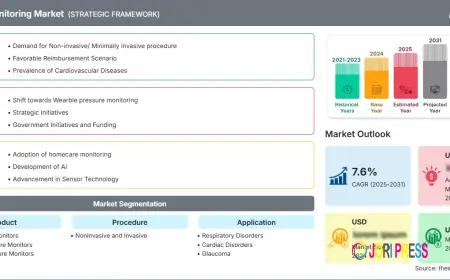Home Healthcare Tips for Assisting Patients with Parkinson’s
Home Health Care in Dubai & Abu Dhabi provides a wide range of Home Healthcare facilities in the comfortable environment of your home for your convenience.

Caring for someone with Parkinson’s disease at home requires patience, understanding, and practical strategies to improve their quality of life. This guide offers helpful tips for caregivers to support patients with Parkinson’s in a compassionate and effective way. Let's delve into Home Healthcare Dubai
Understanding Parkinson’s Disease
Parkinson’s disease is a progressive neurological condition that affects movement. Symptoms include tremors, stiffness, slow movement, and balance difficulties. These challenges often make everyday activities harder for those living with the condition. Knowing the basics helps caregivers provide better support tailored to the patient’s needs.
Creating a Safe Living Environment
Safety is crucial for patients with Parkinson’s due to their increased risk of falls and injuries. Modifying the home environment can significantly reduce hazards and improve comfort.
Remove Tripping Hazards
Clear pathways from furniture, rugs, and clutter. Ensure floors are dry and free of obstacles that could cause slips or trips.
Install Supportive Devices
Use sturdy handrails in hallways and bathrooms. Place grab bars near the toilet and shower to help with stability.
Improve Lighting
Bright, even lighting reduces shadows that can confuse or disorient patients. Use nightlights to prevent accidents during nighttime movements.
Encouraging Physical Activity
Maintaining mobility is vital for patients with Parkinson’s. Regular exercise helps manage symptoms, improves balance, and boosts mood.
Gentle Stretching and Flexibility Exercises
Encourage simple stretching routines to reduce muscle stiffness. Assist with slow, controlled movements that promote flexibility.
Balance and Coordination Activities
Engage in exercises that challenge balance, such as standing on one foot with support or gentle side steps. These activities help prevent falls.
Encourage Walking
Supervised short walks indoors or outdoors enhance endurance. Using assistive devices if needed can provide added confidence.
Assisting with Daily Activities
Parkinson’s affects fine motor skills, making tasks like dressing, eating, and grooming difficult. Providing the right support encourages independence while ensuring safety.
Dressing Assistance
Choose clothing with easy fastenings such as Velcro or elastic waistbands. Lay out clothes in order to simplify dressing.
Eating Support
Serve soft, easy-to-chew foods. Use utensils with larger handles for a better grip. Encourage small bites and slow eating to reduce choking risk.
Personal Hygiene
Set up a comfortable bathing routine with non-slip mats and a shower chair if necessary. Assist with grooming by breaking tasks into manageable steps.
Managing Medication Schedules
Though this guide does not discuss specific medications, helping patients adhere to their medication timing is important. Caregivers can support by setting reminders and preparing medication in advance to maintain consistency.
Communication Tips
Parkinson’s can affect speech clarity. Patience and effective communication techniques improve interactions.
Speak Slowly and Clearly
Use simple sentences and allow extra time for responses. Avoid rushing conversations.
Use Non-Verbal Cues
Gestures, facial expressions, and written notes can help convey messages when speech is difficult.
Encourage Social Interaction
Promote engagement in social activities to reduce isolation and improve emotional well-being.
Nutrition and Hydration
Proper nutrition supports overall health and helps manage symptoms.
Balanced Meals
Provide meals rich in fruits, vegetables, whole grains, and lean proteins to maintain energy.
Hydration
Encourage regular fluid intake to prevent dehydration and support body functions.
Emotional Support and Encouragement
Living with Parkinson’s can be emotionally challenging. Caregivers should foster a positive and supportive environment.
Active Listening
Allow patients to express feelings and concerns without judgment.
Celebrate Small Achievements
Acknowledge progress and efforts, no matter how minor, to boost confidence.
Encourage Hobbies and Interests
Help patients engage in enjoyable activities that promote a sense of purpose.
Recognizing and Managing Fatigue
Fatigue is common in Parkinson’s and can impact daily life.
Encourage Rest Periods
Include breaks during activities and promote adequate sleep at night.
Balance Activity and Rest
Help plan a daily schedule that combines active and restful periods to avoid exhaustion.
Using Assistive Devices
Assistive devices can enhance independence and safety for patients.
Walking Aids
Canes, walkers, or rollators offer stability during movement.
Adaptive Tools
Utensils, dressing aids, and button hooks make daily tasks easier.
Monitoring for Changes
Caregivers should watch for any changes in symptoms or abilities to adjust care plans accordingly.
Keep a Symptom Journal
Track motor and non-motor symptoms to share with healthcare providers if needed.
Report Concerns
Promptly note any new difficulties or worsening conditions to ensure timely support.
FAQs
What Are the Most Important Safety Measures at Home?
Ensuring clear walkways, installing grab bars, improving lighting, and removing hazards are essential to prevent falls and injuries.
How Can Caregivers Help With Mobility?
Encouraging gentle exercise, assisting with walking, and using assistive devices help maintain mobility and balance.
What Is the Best Way to Support Speech Difficulties?
Speaking slowly, using simple language, and incorporating non-verbal communication improve understanding.
How Can Caregivers Manage Fatigue in Parkinson’s Patients?
Balancing activities with rest periods and promoting healthy sleep routines can reduce fatigue.
How Important Is Nutrition for Someone with Parkinson’s?
Nutrition plays a key role in maintaining energy levels and overall health. Balanced meals and hydration are crucial.
What Emotional Support Is Helpful for Parkinson’s Patients?
Listening actively, encouraging social interaction, and celebrating small successes help maintain emotional well-being.
Are There Specific Tips for Assisting With Daily Activities?
Choosing adaptive clothing, offering help with grooming, and using utensils with better grips support independence.
How Should Caregivers Monitor Changes in Condition?
Keeping a symptom diary and being attentive to new challenges helps adjust care as needed.
Home Healthcare in Dubai for patients with Parkinson’s is a compassionate journey that blends practical strategies with empathy. By focusing on safety, mobility, communication, and emotional support, caregivers can make a significant positive impact on the lives of those they assist.
What's Your Reaction?
 Like
0
Like
0
 Dislike
0
Dislike
0
 Love
0
Love
0
 Funny
0
Funny
0
 Angry
0
Angry
0
 Sad
0
Sad
0
 Wow
0
Wow
0


















































